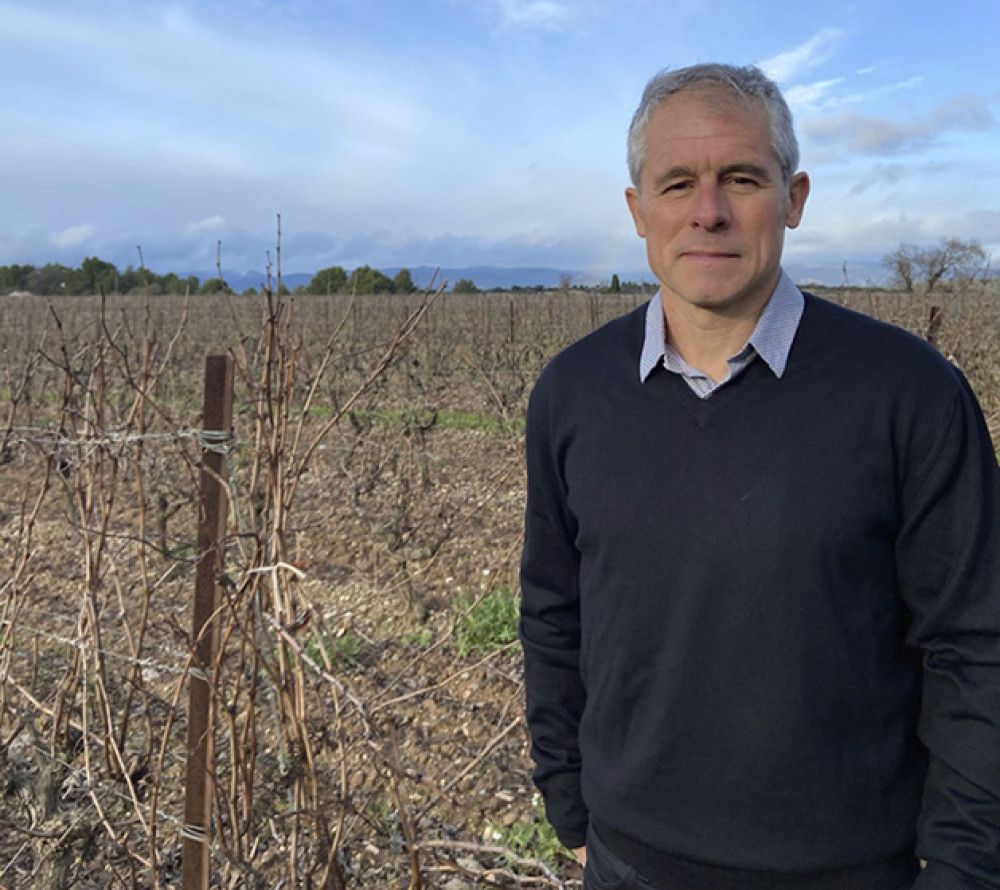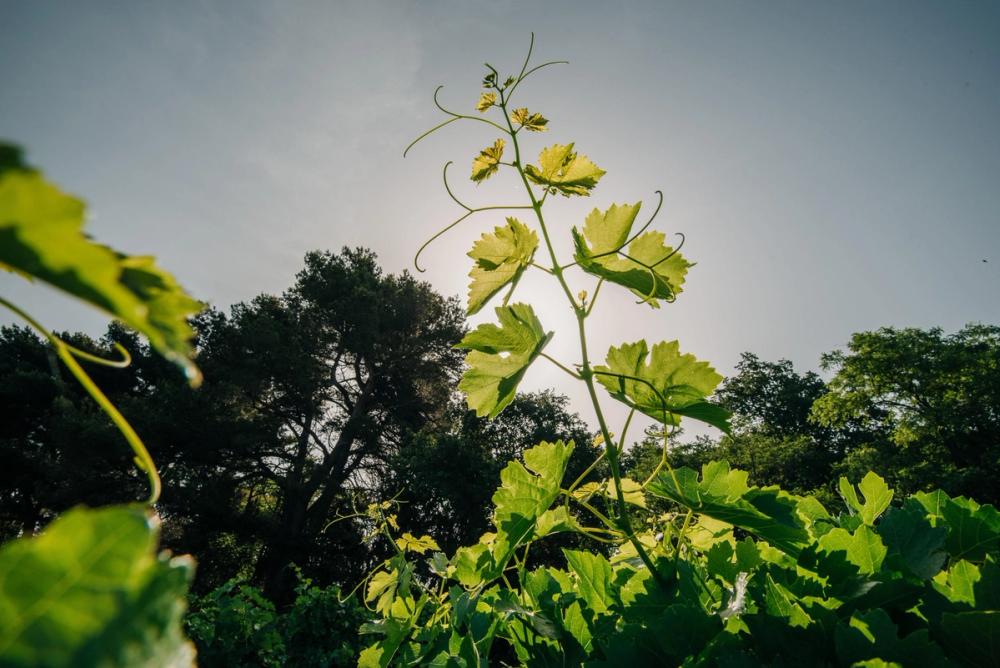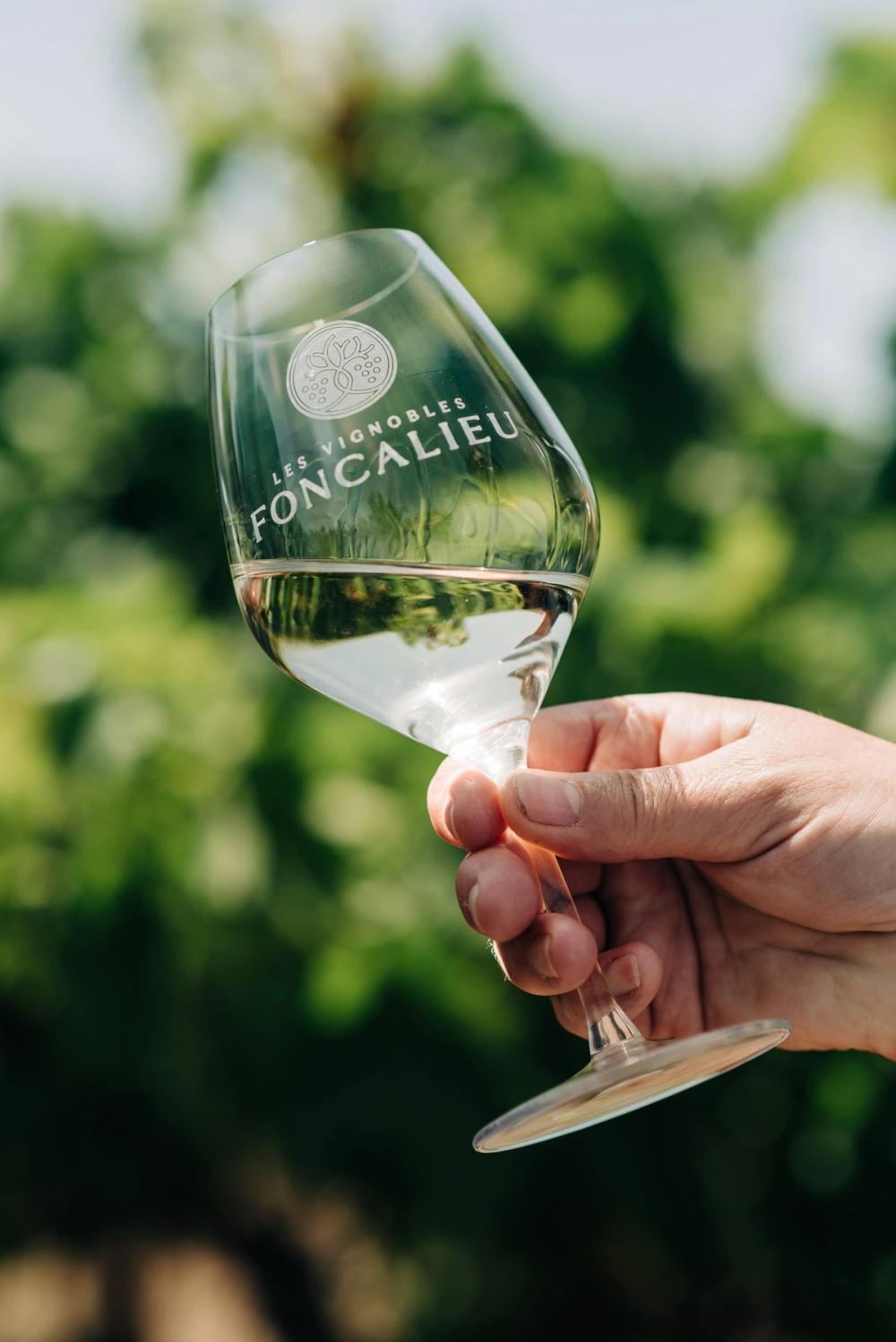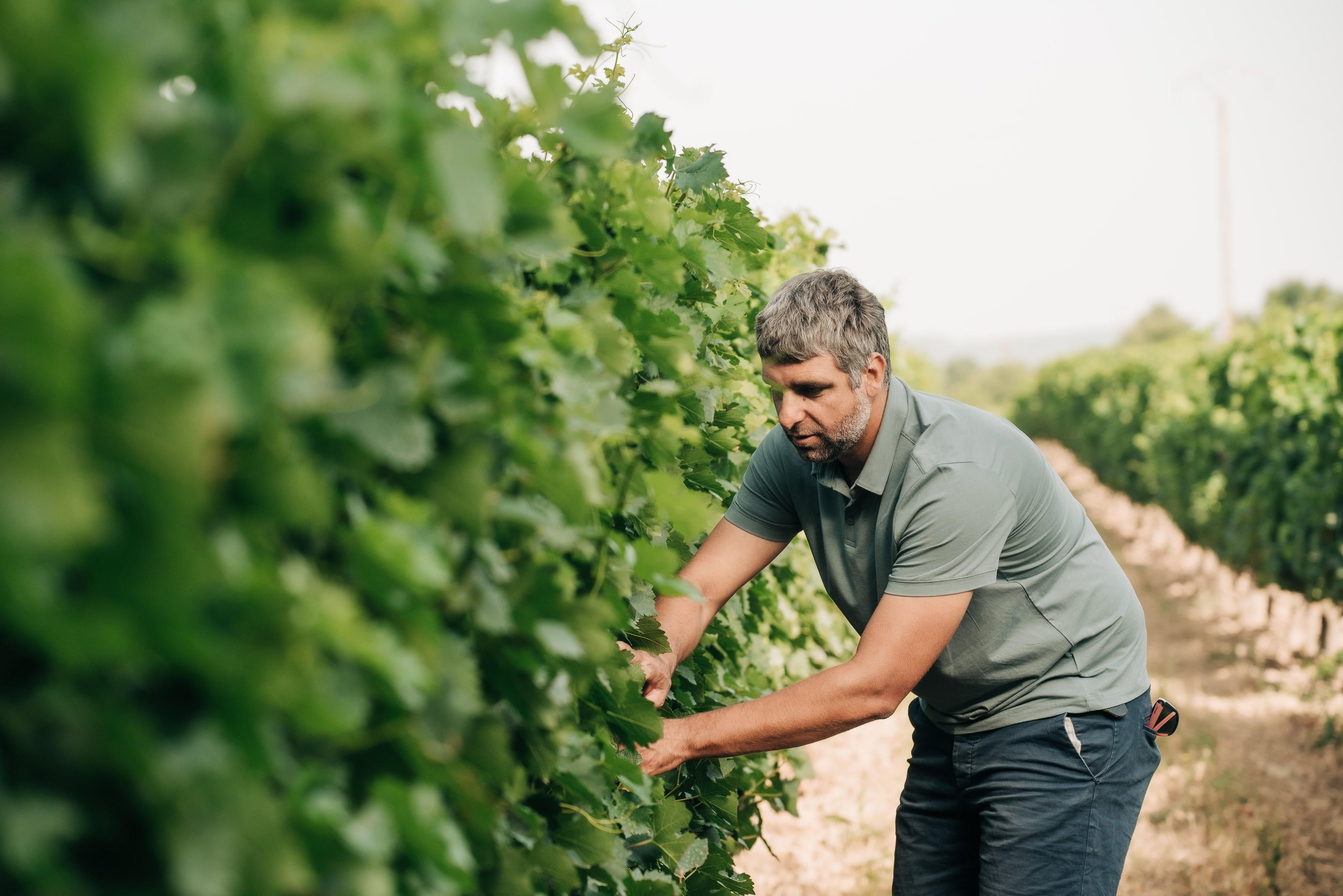Jean-Marie Cassignol became Foncalieu's chairman in 2020, having risen through the ranks as a grower, first joining the cooperative at its Puichéric site in 1994. Now it's his job to ponder the big questions, and shortly after I shake his hand, he's talking earnestly about the group's imminent challenges, foremost among which is climate change.
"The water table in the growing areas is currently very low. We hope to have some water in spring, then one or two storms in summer, because there are precious few reserves left. If there's no rain, then in the zones that are not irrigated [about half of the group's vineyards], then the vines will struggle."

Jean-Marie Cassignol is ready to make the big decisions at Vignobles Foncalieu
This strikes me as alarming, but Cassignol is ready with answers. "We now have several meteorological stations around the vineyards, and receive regular irrigation reports. These tell us how much available water there is in the soils and how much irrigation the plants need. We leave more foliage around the grapes than we used to, to protect them from the sun. We're also considering planting drought-resistant grapes and even replanting our vineyards in an east-west rather than the current north-south direction, to provide more shade."
This pragmatic approach sets the tone for our meeting, which never strays far from the environment – an obsessive respect for which is clearly key to Foncalieu's ethos.
Certifications unpacked
A full 83% of Foncalieu's vineyards have some form of agro-environmental accreditation – organic, HEV (high environmental value) or Terra Vitis – but Cassignol understands that the last two can leave consumers somewhat confused, so is keen to distinguish them from organic viticulture.
"Oganic is all about the wines, it is about achieving quality results using only products that are authorised for organic viticulture – so no synthetic chemical treatments in the vineyard for at least the previous three years," he explains.
"HEV recognises farms that are committed to an environmentally friendly approach, and covers the entirety of the business's activity. Both organic treatments and some conventional treatments are authorised in the vineyard, the focus is fundamentally on biodiversity conservation, and includes plant protection, management of fertiliser use and water management. Most of our organic wine growers are also HEV certified.
"Terra Vitis applies to our business and the wines it produces, with a focus on sustainable, responsible winemaking practices."
These are impressive credentials, but I'm far from alone in finding the accreditations a tad opaque. According to a 2023 survey carried out by Millésime Bio, 87% of French consumers recognised the principles of organic certification, but the figures for HEV and Terra Vitis were a mere 27% and 19%, respectively, and are likely to be even lower in export markets.
"C'est très technique," Cassignol admits.
New grapes unveiled

A lot of work has been done at Foncalieu to experiment with new varieties and techniques best equipped to work in its unique soils. Picture Ludovic Charles.
Still more technical, but with an allure that reaches far beyond trade speak and wine nerdery, is Foncalieu's pioneering work on what they refer to as the "new French vine varieties."
I first spoke to Foncalieu's chief winemaker, Gabriel Ruetsch, in 2018, about this fascinating work. “The project was the brainchild of the late Alain Bouquet, an agronomist at Montpellier's INRA research institute,” he explained. Bouquet's aim was to breed a new generation of French hybrid vines that were resistant to mildew and oïdium, types of rot that were brought to Europe on American vine cuttings in the 19th Century. This would reduce the need for vineyard treatments.
Interbreeding of European Vitis vinifera with American vine species first began as an initial solution to the 19th Century Phylloxera epidemic. Although the hybrid vines that were created proved immune to Phylloxera, the wines they made usually retained some of the less desirable taste characteristics of their American parents. Research into hybrid varieties continued in some European countries, like Germany and Switzerland, but virtually ceased in France in the 1970s.
So Bouquet's challenge was to create new varieties that combined this resistance with the kinds of attractive flavours common to wines made from Vitis vinifera plants.
He started out with a simple hybrid variety and began a process of retro-breeding with multiple vinifera plants, including Cabernet Sauvignon, Grenache and Merlot. Only towards the end of the breeding sequence did the paths of the new varieties diverge, creating four different grapes with remarkably individual flavours.
"Foncalieu was the first producer to become interested in planting the 'Bouquet' varieties in 2007," says Cassignol, with evident pride.
"We wanted to be pioneers in growing varieties capable of adapting to climate change naturally, in a way that respects the environment, winegrowers and consumers. It was about being the first to produce and market a wine made from new French vine varieties.
"First to market were 4,000 bottles of the 2018 vintage of the red variety Artaban. Then with the 2021 vintage, we introduced a white and a rosé into the range. We use Artaban and Vidoc for the red and the rosé, and Floréal for the white. The entire range still represents a mere 20,000 bottles. We have learned to adapt our winemaking techniques to produce wines that meet consumer expectations as faithfully as possible."
"This year," he adds, "we're launching a new wine: a vin gris made from Souvignier Gris, a resistant variety of German origin. It will be available in two different labels - 'Esprit Artisan' for the more 'traditional' markets, and 'Atelier n°10' for the supermarkets."
An eye on the future

Foncalieu is working hard to introduce new styles using a diversity of grapes it believes are the future of what can be grown in the region. Photo Ludovic Charles
With domestic wine consumption in steady decline and a pan-European cost of living crisis, there is a general sense among Languedoc-Roussillon's winemakers that hard times are ahead. "Our future depends on our ability to adapt to markets and to innovate," says Cassignol.
Evidence of this adaptation is all over Foncalieu's range of wines, from the group's decision to focus primarily on whites and rosés (now about two thirds of production), to a concentration on curious varietals such as the Spanish / Portuguese white Albariňo, the rare Piquepoul Noir – as a rosé – and the increasingly chic Malbec. Cassignol also believes that lighter, fresher reds will be part of the group's future direction, as well a greater number of wines under 12% a.b.v.
In addition to Foncalieu's commitment to the environment, the health of its vineyards and the wines produced, Cassignol also believes that social responsibility is key to the group's future: "It is the very essence of the cooperative movement."
With this end in sight, Foncalieu received CSR (corporate social responsibility) accreditation in 2022 from AFNOR (Association Française de Normalisation).
"Our long-term development strategy is based fundamentally on models of economic value creation that are respectful of people and the environment, for every one of our stakeholders," says Cassignol.
"Changing our practices is a priority: we encourage and support our winegrowers, wineries and teams in promoting sustainable agriculture and protecting biodiversity by reducing water use, the sorting of waste and with energy management. A pioneering approach in the vineyard is essential for the sustainability of our activity. This approach affects every area of our business and includes the entire chain, from suppliers to consumers, optimising every process from the vine to the glass."
* Vignobles de Foncalieu is a commercial partner of The Buyer. You can find out more about its business and wines here.






























